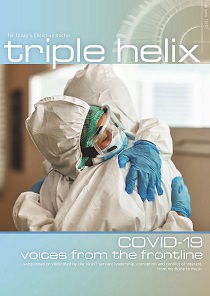On 21 July, in a move by the government to cultivate a positive relationship with its valuable 'frontliners', the Treasury announced a pay rise for almost 900,000 public sector workers. [1] However, not everybody embraced the pay rise because the pay rise did not embrace everybody. In the NHS, the raise will only benefit dentists and senior doctors, leaving nurses, midwives, junior doctors, healthcare assistants, and many other frontline health workers excluded, not to mention those working in social care.
Many of those excluded are in the final year of a three-year Agenda for Change pay deal, [2] while junior doctors signed an agreement last year [3] after a hard-fought battle. Not at all satisfied with that reasoning, protestors filled the streets in more than 30 UK cities to express their disgust at the decision. [4] While the fight against the virus has taken centre stage, another battle has bubbled under the surface: the fight for hero status. Who has sacrificed more during the pandemic - teachers or healthcare workers? NHS staff or care home staff? Nurses or doctors? Intensivists or GPs?
Many healthcare professionals object to being called 'heroes' because heroes volunteer. In contrast, they argue, healthcare professionals are employed to provide a service for which they have been promised an appropriate financial compensation. Calling them heroes masks the truth.
In contrast, a CMF member recently told me that 'I have never knowingly treated a COVID case. And I am not the only one who has "felt a fraud" when clapped on a Thursday by my neighbours. Particularly so when I know that many of my neighbours, and church brothers and sisters, had to either continue to work in supermarkets, public transport, care homes, or survive on furlough on 80 per cent pay, whilst struggling to pay rents, and fearing eventual redundancy... meanwhile [many doctors receiving the pay rise] have been sitting at home, still being paid for work they were not able to do because of lockdown...'
Sometimes our colleagues work hours that are incompatible with their or their patients' safety. Some rely on foodbanks despite working full time because their wages are insufficient. Others are paid more despite doing less due to circumstances beyond their control. That does not feel just. And we should speak up - sign the petition; write the letter; go to the protest. However, we must realise that our attitude to our own work is of utmost importance and that this season of exasperation among colleagues is an opportunity for us to shine, knowing that while our earthly rewards may waver, our treasure in heaven is secure.[5]
This news review is based upon Georgie's CMF Blog at cmf.li/3gVQIBB
































